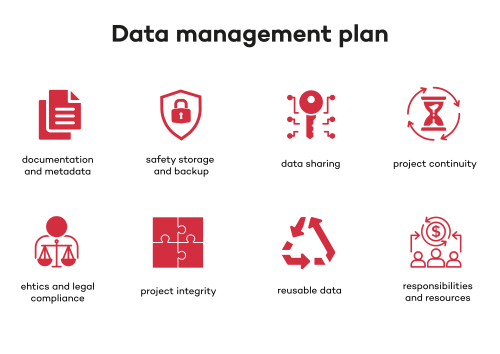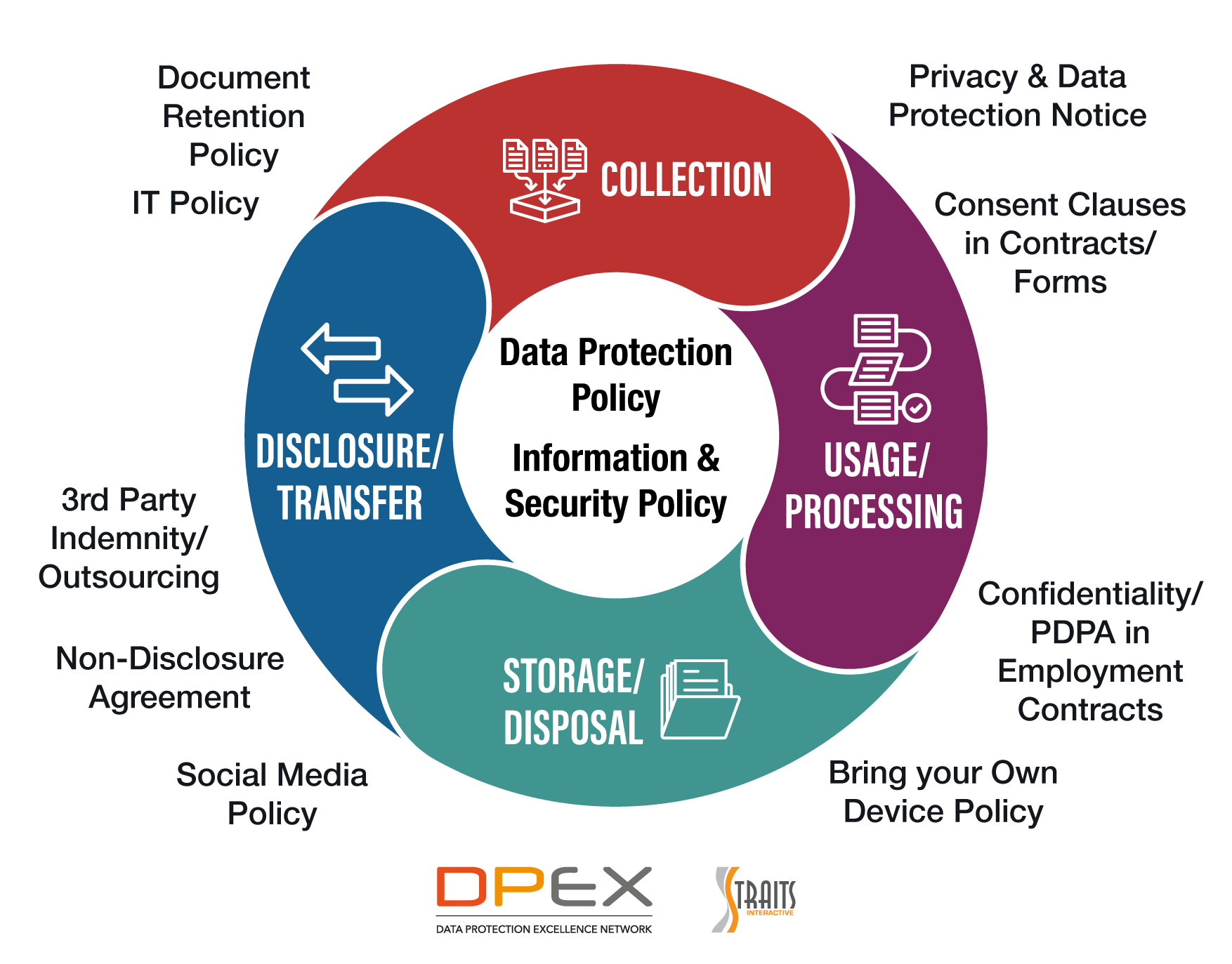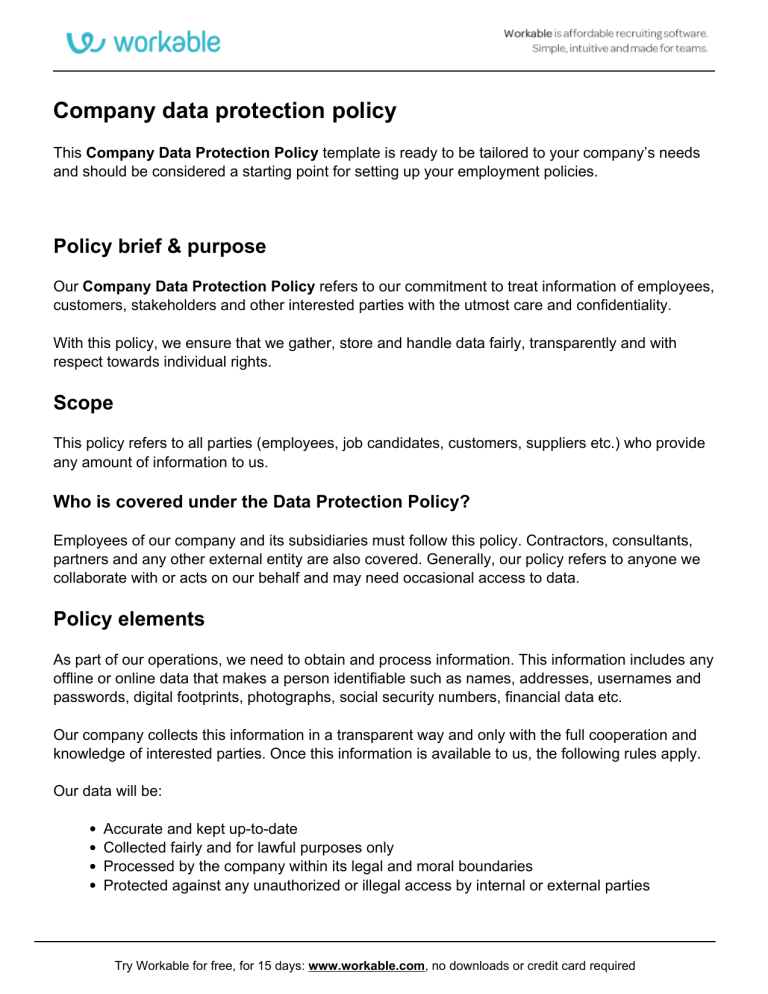A Comprehensive Examination of Data Management and Protection (DMP) Policy
Related Articles: A Comprehensive Examination of Data Management and Protection (DMP) Policy
Introduction
With great pleasure, we will explore the intriguing topic related to A Comprehensive Examination of Data Management and Protection (DMP) Policy. Let’s weave interesting information and offer fresh perspectives to the readers.
Table of Content
- 1 Related Articles: A Comprehensive Examination of Data Management and Protection (DMP) Policy
- 2 Introduction
- 3 A Comprehensive Examination of Data Management and Protection (DMP) Policy
- 3.1 Understanding DMP Policy: A Foundation for Data Governance
- 3.2 Benefits of Implementing a Robust DMP Policy
- 3.3 Key Considerations for DMP Policy Implementation
- 3.4 FAQs Regarding DMP Policies
- 3.5 Tips for Developing and Implementing a DMP Policy
- 3.6 Conclusion: DMP Policies: A Cornerstone of Responsible Data Management
- 4 Closure
A Comprehensive Examination of Data Management and Protection (DMP) Policy

In the contemporary landscape of digital information, where data is the lifeblood of businesses, governments, and individuals alike, its management and protection have become paramount. Data Management and Protection (DMP) policies are essential frameworks that govern the collection, storage, use, and disclosure of data, ensuring its integrity, security, and compliance with relevant regulations. This article provides a comprehensive overview of DMP policies, exploring their core components, benefits, and crucial considerations for implementation.
Understanding DMP Policy: A Foundation for Data Governance
A DMP policy serves as a blueprint for data handling practices within an organization. It establishes clear guidelines and procedures for all data-related activities, encompassing aspects like:
- Data Collection: This section outlines the specific types of data collected, the purpose of collection, and the legal basis for data acquisition. It emphasizes transparency and informed consent, ensuring individuals understand how their data is being used.
- Data Storage and Security: DMP policies mandate secure storage practices, including encryption, access control mechanisms, and regular security audits. These measures safeguard data from unauthorized access, breaches, and data loss.
- Data Use and Sharing: Clear guidelines govern the permissible uses of collected data, including internal analysis, product development, and data sharing with third parties. This section emphasizes data minimization, ensuring only necessary data is processed for specific purposes.
- Data Retention and Disposal: DMP policies define data retention periods, ensuring data is stored only for as long as required. They also outline secure data disposal methods, preventing unauthorized access to sensitive information.
- Data Subject Rights: DMP policies recognize the rights of individuals to access, rectify, or erase their personal data, aligning with principles of data privacy and control.
- Compliance with Regulations: DMP policies must adhere to relevant data protection laws and regulations, such as the General Data Protection Regulation (GDPR), California Consumer Privacy Act (CCPA), and other regional or national laws.
Benefits of Implementing a Robust DMP Policy
The implementation of a comprehensive DMP policy yields numerous benefits, including:
- Enhanced Data Security: By outlining security protocols and access controls, DMP policies minimize the risk of data breaches, safeguarding sensitive information from unauthorized access.
- Improved Data Governance: Clear guidelines and procedures streamline data management processes, fostering accountability and transparency within the organization.
- Increased Trust and Transparency: DMP policies demonstrate commitment to data privacy and security, enhancing trust with customers, employees, and other stakeholders.
- Reduced Legal Risk: Adherence to data protection regulations minimizes the risk of fines, lawsuits, and reputational damage stemming from data breaches or non-compliance.
- Enhanced Business Efficiency: By optimizing data management practices, DMP policies streamline data-driven decision-making, leading to improved operational efficiency and resource allocation.
- Improved Customer Relationships: Transparency and control over personal data fosters positive customer relationships, promoting loyalty and trust.
Key Considerations for DMP Policy Implementation
Successfully implementing a DMP policy requires careful consideration of several factors:
- Organizational Context: DMP policies should be tailored to the specific needs and operations of the organization, taking into account its size, industry, and data processing activities.
- Data Inventory and Mapping: A thorough inventory of all data assets, including their types, sources, and purposes, is crucial for effective policy implementation.
- Stakeholder Engagement: Involving key stakeholders, such as employees, customers, and legal counsel, ensures alignment and buy-in for the DMP policy.
- Training and Awareness: Regular training programs and awareness campaigns ensure all employees understand their responsibilities and obligations under the DMP policy.
- Monitoring and Review: Continuous monitoring and periodic reviews of the DMP policy are essential to ensure its effectiveness and adapt to evolving data protection regulations and organizational needs.
FAQs Regarding DMP Policies
1. What are the key legal requirements for DMP policies?
DMP policies must comply with relevant data protection laws and regulations, including the GDPR, CCPA, and other regional or national laws. These laws specify requirements for data collection, storage, use, and disclosure, as well as individual rights regarding personal data.
2. How often should DMP policies be reviewed and updated?
DMP policies should be reviewed and updated at least annually, or more frequently if there are significant changes in data protection regulations, organizational practices, or technology.
3. What are the consequences of failing to comply with DMP policies?
Non-compliance with DMP policies can result in significant consequences, including fines, lawsuits, reputational damage, and loss of customer trust.
4. How can organizations ensure their DMP policies are effective?
Effective DMP policies require a combination of clear guidelines, robust security measures, regular monitoring, and ongoing employee training.
5. What are the benefits of using data management software to support DMP policies?
Data management software can streamline data management processes, automate data protection tasks, and provide valuable insights into data usage patterns, enabling organizations to more effectively implement and enforce DMP policies.
Tips for Developing and Implementing a DMP Policy
- Involve relevant stakeholders: Engage key stakeholders, including legal counsel, IT professionals, and data privacy experts, in the development and implementation of the DMP policy.
- Use clear and concise language: Ensure the policy is written in plain language, avoiding technical jargon, to facilitate understanding and compliance.
- Tailor the policy to your organization: Consider your specific data processing activities, industry regulations, and organizational culture when crafting the policy.
- Implement robust security measures: Employ strong encryption, access controls, and regular security audits to safeguard data from unauthorized access and breaches.
- Provide ongoing training: Regularly train employees on the DMP policy and their responsibilities regarding data management and protection.
- Monitor compliance and make adjustments: Regularly review and update the DMP policy to reflect changes in data protection regulations, organizational practices, and technological advancements.
Conclusion: DMP Policies: A Cornerstone of Responsible Data Management
In an increasingly data-driven world, DMP policies are essential for responsible data management and protection. By establishing clear guidelines and procedures for data handling, these policies safeguard data integrity, ensure compliance with regulations, and enhance trust with stakeholders. Implementing a comprehensive DMP policy is not just a regulatory requirement, but a strategic imperative for organizations seeking to harness the power of data while upholding ethical and legal obligations. By prioritizing data management and protection, organizations can foster a culture of data security, transparency, and accountability, enabling them to leverage data effectively and build enduring trust with their stakeholders.








Closure
Thus, we hope this article has provided valuable insights into A Comprehensive Examination of Data Management and Protection (DMP) Policy. We hope you find this article informative and beneficial. See you in our next article!